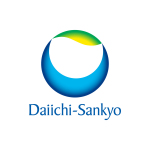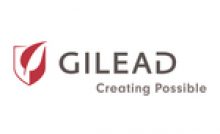ENHERTU� Approved in Japan for Treatment of Patients with HER2 Positive Unresectable or Metastatic Breast Cancer


- Approval based on the pivotal DESTINY-Breast01 trial represents third approval ever under the conditional early approval system in Japan, and follows recent U.S. accelerated approval of ENHERTU®
- ENHERTU® represents the second innovative treatment from the oncology pipeline of Daiichi Sankyo to be approved for use in Japan in past year
TOKYO & MUNICH & BASKING RIDGE, N.J.–(BUSINESS WIRE)–Daiichi Sankyo Company, Limited (hereafter, Daiichi Sankyo) today announced the approval of ENHERTU® (trastuzumab deruxtecan), a HER2 directed antibody drug conjugate (ADC), in Japan for the treatment of patients with HER2 positive unresectable or recurrent breast cancer after prior chemotherapy (limit the use to patients who are refractory or intolerant to standard treatments).
Approval of ENHERTU® by Japan’s Ministry of Health, Labor, and Welfare (MHLW) is based on the results of the open-label, single-arm, pivotal phase 2 DESTINY-Breast01 trial of ENHERTU® (5.4 mg/kg) monotherapy in 184 female patients (including 30 Japanese women) with HER2 positive metastatic breast cancer. A confirmed objective response rate of 64.1% [95% CI: 56.3-71.3] was demonstrated in the response evaluable set of 107 of 167 patients, which was the primary endpoint of the study.1 Twenty-six women from Japan were included in the objective response rate analysis, with a data cut-off of March 21, 2019.
“Our researchers in Japan have worked diligently on our ADC technology and we are excited to bring ENHERTU®, the first of many ADCs we have in development, to patients with HER2 positive metastatic breast cancer in Japan. Results seen with ENHERTU® are impressive as most women benefited from treatment with durable responses lasting a median duration of more than 14 months,” said Wataru Takasaki, PhD, Corporate Officer, Head of Oncology Function and Head of R&D Division in Japan, Daiichi Sankyo. “ENHERTU® also represents the second innovative treatment to be approved in Japan from our oncology pipeline within the past year, a milestone we are extremely proud of as we work to transform science into meaningful treatments for patients with cancer.”
Efficacy and safety of ENHERTU® in patients without prior trastuzumab, taxane and trastuzumab emtansine treatment have not been established. ENHERTU® is approved in Japan with a Warning for Interstitial Lung Disease (ILD). As cases of ILD, including fatal cases, have occurred in ENHERTU®-treated patients, ENHERTU® is to be used in close collaboration with a respiratory disease expert. Closely observe patients during therapy by monitoring for early signs or symptoms of ILD (such as dyspnea, cough or fever) and regularly perform peripheral artery oxygen saturation (SpO2) tests, chest X-ray scans and chest CT scans. If abnormalities are observed, discontinue administration of ENHERTU®, and take appropriate measures such as corticosteroid administration. Prior to initiation of ENHERTU® therapy, perform a chest CT scan and interview to confirm the absence of any comorbidity or history of ILD with the patient, and carefully consider the eligibility of the patient for ENHERTU® therapy.
Adverse reactions occurred in 182 of 184 patients (98.9%) who received ENHERTU®. The most common adverse reactions were nausea in 140 patients (76.1%), alopecia in 85 patients (46.2%), fatigue in 81 patients (44.0%), vomiting in 78 patients (42.4%), neutrophil count decreased in 55 patients (29.9%), decreased appetite in 52 patients (28.3%), anemia in 40 patients (21.7%) and diarrhea in 40 patients (21.7%). Overall incidence of ILD was 8.2%. ILD occurred in 23% of Japanese patients (7 out of 30) with no grade 3 or above events including no ILD-related deaths.
About HER2 Positive Breast Cancer
Approximately one in five breast cancers are HER2 positive.2,3 Despite recent improvements and approvals of new medicines, there remain significant clinical needs for patients with HER2 positive metastatic breast cancer.4,5 This disease remains incurable with patients eventually progressing after available treatment.4,5
About HER2
HER2 is a tyrosine kinase receptor growth-promoting protein found on the surface of some cancer cells that is associated with aggressive disease and poor prognosis in patients with breast cancer.6 To be considered HER2 positive, tumor cancer cells are usually tested by one of two methods: immunohistochemistry (IHC) or fluorescent in situ hybridization (FISH). IHC test results are reported as: 0, IHC 1+, IHC 2+, or IHC 3+.6 A finding of IHC 3+ and/or FISH amplification is considered positive.6
About DESTINY-Breast01
DESTINY-Breast01 is a pivotal phase 2, single-arm, open-label, global, multicenter, two-part trial evaluating the safety and efficacy of ENHERTU® in 184 female patients with HER2 positive unresectable and/or metastatic breast cancer previously treated with ado-trastuzumab emtansine (T-DM1). The primary endpoint of the trial is objective response rate, as determined by independent central review. Secondary objectives include pharmacokinetics, duration of response, disease control rate, clinical benefit rate, progression-free survival, overall survival and safety.
About the Clinical Development Program
A comprehensive development program for ENHERTU® is underway globally with five pivotal trials in HER2 expressing metastatic breast and gastric cancer, including a trial in patients with metastatic breast cancer and low levels of HER2 expression (HER2 low). Phase 2 trials are underway for HER2 expressing advanced colorectal cancer as well as metastatic non-squamous HER2 overexpressing or HER2 mutated non-small cell lung cancer. Trials in combination with other anticancer treatments, such as immunotherapy, also are underway.
ENHERTU® has previously received SAKIGAKE designation for the treatment of advanced HER2 positive gastric or gastroesophageal junction cancer by Japan’s MHLW.
About ENHERTU®
ENHERTU® (trastuzumab deruxtecan in Japan and other regions of the world; fam-trastuzumab deruxtecan-nxki in the U.S.), is the lead ADC in the oncology portfolio of Daiichi Sankyo and the most advanced program in AstraZeneca’s ADC Scientific platform.
ADCs are targeted cancer medicines that deliver cytotoxic chemotherapy (“payload”) to cancer cells via a linker attached to a monoclonal antibody that binds to a specific target expressed on cancer cells. Designed using Daiichi Sankyo’s proprietary DXd ADC technology, ENHERTU® is comprised of a HER2 monoclonal antibody attached to a topoisomerase I inhibitor payload by a tetrapeptide-based linker.
ENHERTU®, also known as DS-8201, has not been approved in the EU, or countries outside of Japan and the United States, for any indication.
About the Collaboration between Daiichi Sankyo and AstraZeneca
In March 2019, Daiichi Sankyo and AstraZeneca entered into a global collaboration to jointly develop and commercialize ENHERTU®, except in Japan where Daiichi Sankyo maintains exclusive rights. Daiichi Sankyo is solely responsible for the manufacturing and supply.
U.S. FDA-Approved Indication for ENHERTU®
ENHERTU® is a HER2-directed antibody and topoisomerase inhibitor conjugate indicated for the treatment of adult patients with unresectable or metastatic HER2-positive breast cancer who have received two or more prior anti-HER2-based regimens in the metastatic setting.
This indication is approved under accelerated approval based on tumor response rate and duration of response. Continued approval for this indication may be contingent upon verification and description of clinical benefit in a confirmatory trial.
| WARNING: INTERSTITIAL LUNG DISEASE and EMBRYO-FETAL TOXICITY |
|
Contraindications
None.
WARNINGS AND PRECAUTIONS
Interstitial Lung Disease / Pneumonitis
Severe, life-threatening, or fatal interstitial lung disease (ILD), including pneumonitis, can occur in patients treated with ENHERTU®. In clinical studies, of the 234 patients with unresectable or metastatic HER2-positive breast cancer treated with ENHERTU®, ILD occurred in 9% of patients. Fatal outcomes due to ILD and/or pneumonitis occurred in 2.6% of patients treated with ENHERTU®. Median time to first onset was 4.1 months (range: 1.2 to 8.3).
Advise patients to immediately report cough, dyspnea, fever, and/or any new or worsening respiratory symptoms. Monitor patients for signs and symptoms of ILD. Promptly investigate evidence of ILD. Evaluate patients with suspected ILD by radiographic imaging. Consider consultation with a pulmonologist. For asymptomatic ILD/pneumonitis (Grade 1), interrupt ENHERTU® until resolved to Grade 0, then if resolved in ≤28 days from date of onset, maintain dose. If resolved in >28 days from date of onset, reduce dose one level. Consider corticosteroid treatment as soon as ILD/pneumonitis is suspected (e.g., ≥0.5 mg/kg prednisolone or equivalent). For symptomatic ILD/pneumonitis (Grade 2 or greater), permanently discontinue ENHERTU®. Promptly initiate corticosteroid treatment as soon as ILD/pneumonitis is suspected (e.g., ≥1 mg/kg prednisolone or equivalent). Upon improvement, follow by gradual taper (e.g., 4 weeks).
Neutropenia
Severe neutropenia, including febrile neutropenia, can occur in patients treated with ENHERTU®. Of the 234 patients with unresectable or metastatic HER2-positive breast cancer who received ENHERTU®, a decrease in neutrophil count was reported in 30% of patients and 16% had Grade 3 or 4 events. Median time to first onset was 1.4 months (range: 0.3 to 18.2). Febrile neutropenia was reported in 1.7% of patients.
Monitor complete blood counts prior to initiation of ENHERTU® and prior to each dose, and as clinically indicated. Based on the severity of neutropenia, ENHERTU® may require dose interruption or reduction. For Grade 3 neutropenia (Absolute Neutrophil Count [ANC] <1.0 to 0.5 x 109/L) interrupt ENHERTU® until resolved to Grade 2 or less, then maintain dose. For Grade 4 neutropenia (ANC <0.5 x 109/L) interrupt ENHERTU® until resolved to Grade 2 or less. Reduce dose by one level. For febrile neutropenia (ANC <1.0 x 109/L and temperature >38.3ºC or a sustained temperature of ≥38ºC for more than 1 hour), interrupt ENHERTU® until resolved. Reduce dose by one level.
Left Ventricular Dysfunction
Patients treated with ENHERTU® may be at increased risk of developing left ventricular dysfunction. Left ventricular ejection fraction (LVEF) decrease has been observed with anti-HER2 therapies, including ENHERTU®. In the 234 patients with unresectable or metastatic HER2-positive breast cancer who received ENHERTU®, two cases (0.9%) of asymptomatic LVEF decrease were reported. Treatment with ENHERTU® has not been studied in patients with a history of clinically significant cardiac disease or LVEF <50% prior to initiation of treatment.
Assess LVEF prior to initiation of ENHERTU® and at regular intervals during treatment as clinically indicated. Manage LVEF decrease through treatment interruption. Permanently discontinue ENHERTU® if LVEF of <40% or absolute decrease from baseline of >20% is confirmed. When LVEF is >45% and absolute decrease from baseline is 10-20%, continue treatment with ENHERTU®. When LVEF is 40-45% and absolute decrease from baseline is <10%, continue treatment with ENHERTU® and repeat LVEF assessment within 3 weeks. When LVEF is 40-45% and absolute decrease from baseline is 10-20%, interrupt ENHERTU® and repeat LVEF assessment within 3 weeks. If LVEF has not recovered to within 10% from baseline, permanently discontinue ENHERTU®. If LVEF recovers to within 10% from baseline, resume treatment with ENHERTU® at the same dose. When LVEF is <40% or absolute decrease from baseline is >20%, interrupt ENHERTU® and repeat LVEF assessment within 3 weeks. If LVEF of <40% or absolute decrease from baseline of >20% is confirmed, permanently discontinue ENHERTU®. Permanently discontinue ENHERTU® in patients with symptomatic congestive heart failure.
Embryo-Fetal Toxicity
ENHERTU® can cause fetal harm when administered to a pregnant woman. Advise patients of the potential risks to a fetus. Verify the pregnancy status of females of reproductive potential prior to the initiation of ENHERTU®. Advise females of reproductive potential to use effective contraception during treatment and for at least 7 months following the last dose of ENHERTU®. Advise male patients with female partners of reproductive potential to use effective contraception during treatment with ENHERTU® and for at least 4 months after the last dose of ENHERTU®.
Adverse Reactions
The safety of ENHERTU® was evaluated in a pooled analysis of 234 patients with unresectable or metastatic HER2-positive breast cancer who received at least one dose of ENHERTU® 5.4 mg/kg in DESTINY-Breast01 and Study DS8201-A-J101. ENHERTU® was administered by intravenous infusion once every three weeks. The median duration of treatment was 7 months (range: 0.7 to 31).
Serious adverse reactions occurred in 20% of patients receiving ENHERTU®. Serious adverse reactions in >1% of patients who received ENHERTU® were interstitial lung disease, pneumonia, vomiting, nausea, cellulitis, hypokalemia, and intestinal obstruction. Fatalities due to adverse reactions occurred in 4.3% of patients including interstitial lung disease (2.6%), and the following events occurred in one patient each (0.4%): acute hepatic failure/acute kidney injury, general physical health deterioration, pneumonia, and hemorrhagic shock.
ENHERTU® was permanently discontinued in 9% of patients, of which ILD accounted for 6%. Dose interruptions due to adverse reactions occurred in 33% of patients treated with ENHERTU®. The most frequent adverse reactions (>2%) associated with dose interruption were neutropenia, anemia, thrombocytopenia, leukopenia, upper respiratory tract infection, fatigue, nausea, and ILD. Dose reductions occurred in 18% of patients treated with ENHERTU®. The most frequent adverse reactions (>2%) associated with dose reduction were fatigue, nausea, and neutropenia.
The most common adverse reactions (frequency ≥20%) were nausea (79%), fatigue (59%), vomiting (47%), alopecia (46%), constipation (35%), decreased appetite (32%), anemia (31%), neutropenia (29%), diarrhea (29%), leukopenia (22%), cough (20%), and thrombocytopenia (20%).
Use in Specific Populations
- Pregnancy: ENHERTU® can cause fetal harm when administered to a pregnant woman. Advise patients of the potential risks to a fetus. There are clinical considerations if ENHERTU® is used in pregnant women, or if a patient becomes pregnant within 7 months following the last dose of ENHERTU®.
- Lactation: There are no data regarding the presence of ENHERTU® in human milk, the effects on the breastfed child, or the effects on milk production. Because of the potential for serious adverse reactions in a breastfed child, advise women not to breastfeed during treatment with ENHERTU® and for 7 months after the last dose.
- Females and Males of Reproductive Potential: Pregnancy testing: Verify pregnancy status of females of reproductive potential prior to initiation of ENHERTU®. Contraception: Females: ENHERTU® can cause fetal harm when administered to a pregnant woman. Advise females of reproductive potential to use effective contraception during treatment with ENHERTU® and for at least 7 months following the last dose. Males: Advise male patients with female partners of reproductive potential to use effective contraception during treatment with ENHERTU® and for at least 4 months following the last dose. Infertility: ENHERTU® may impair male reproductive function and fertility.
- Pediatric Use: Safety and effectiveness of ENHERTU® have not been established in pediatric patients.
- Geriatric Use: Of the 234 patients with HER2-positive breast cancer treated with ENHERTU® 5.4 mg/kg, 26% were ≥65 years and 5% were ≥75 years. No overall differences in efficacy were observed between patients ≥65 years of age compared to younger patients. There was a higher incidence of Grade 3-4 adverse reactions observed in patients aged ≥65 years (53%) as compared to younger patients (42%).
- Hepatic Impairment: In patients with moderate hepatic impairment, due to potentially increased exposure, closely monitor for increased toxicities related to the topoisomerase inhibitor.
To report SUSPECTED ADVERSE REACTIONS, contact Daiichi Sankyo, Inc. at 1-877-437-7763 or FDA at 1-800-FDA-1088 or fda.gov/medwatch.
Please see accompanying full Prescribing Information, including Boxed WARNING, and Medication Guide.
About Daiichi Sankyo
Daiichi Sankyo Group is dedicated to the creation and supply of innovative pharmaceutical therapies to improve standards of care and address diversified, unmet medical needs of people globally by leveraging our world-class science and technology. With more than 100 years of scientific expertise and a presence in more than 20 countries, Daiichi Sankyo and its 15,000 employees around the world draw upon a rich legacy of innovation and a robust pipeline of promising new medicines to help people. In addition to a strong portfolio of medicines for cardiovascular diseases, under the Group’s 2025 Vision to become a “Global Pharma Innovator with Competitive Advantage in Oncology.” Daiichi Sankyo is primarily focused on providing novel therapies in oncology, as well as other research areas centered around rare diseases and immune disorders. For more information, please visit: www.daiichisankyo.com.
ENHERTU® is a registered trademark of Daiichi Sankyo Company, Ltd.
—————————-
References:
1 ENHERTU® for intravenous drip infusion 100 mg. Japan Prescribing Information.
2 Tandon A, et al. J Clin Oncol. 1989;7(8):1120-8.
3 Sledge G, et al. J Clin Oncol. 2014;32(19):1979-1986.
4 de Melo Gagliato D, et al. Oncotarget. 2016;7(39):64431-46.
5 National Comprehensive Cancer Network (NCCN). NCCN Guidelines. Breast Cancer. Accessed August 2019.
6 American Cancer Society. Breast Cancer HER2 Status. Accessed August 2019.
Contacts
Media Contacts:
Global:
Jennifer Brennan
Daiichi Sankyo, Inc.
jbrennan2@dsi.com
+1 908 992 6631 (office)
+1 201 709 9309 (mobile)
Japan:
Koji Ogiwara
Daiichi Sankyo, Co., Ltd
ogiwara.koji.ay@daiichisankyo.co.jp
+81 3 6225 1126 (office)
Investor Relations Contact:
DaiichiSankyoIR@daiichisankyo.co.jp
Recent Posts
Jollibee Group recognized anew with Gallup Exceptional Workplace Award
Jollibee Group remains the sole Philippine-based company to be recognized by the prestigious award MANILA,…
DBS Foundation’s Inaugural “GBA Impact Beyond Dialogue 2025” to Explore the Future of an Ageing Society
Reimagining collaborative approaches to silver economy with government, businesses and social enterprises HONG KONG SAR…
Lulu Furniture Launches Custom Wardrobe Services to Meet Growing Demand in Singapore
SINGAPORE - Media OutReach Newswire - 29 April 2025 – Lulu Furniture, a trusted name…
Renaissance College Hong Kong Students Design Iconic Hong Kong Tram in Collaboration with Tramplus
HONG KONG SAR - Media OutReach Newswire - 29 April 2025 - ESF Renaissance College…
Changemakers Program Gains Traction as Hang Lung Partners with Tenants in Vibrant Sustainability Community
Enhanced Changemakers Program and LVMH Group collaboration drive momentum for shared ESG commitment HONG KONG…
Dusit Hotels and Resorts expands presence in Vietnam, opens luxury Dusit Le Palais Tu Hoa Hanoi on the banks of West Lake
Located in Hanoi’s historic Tay Ho district, the hotel draws inspiration from the life of…


